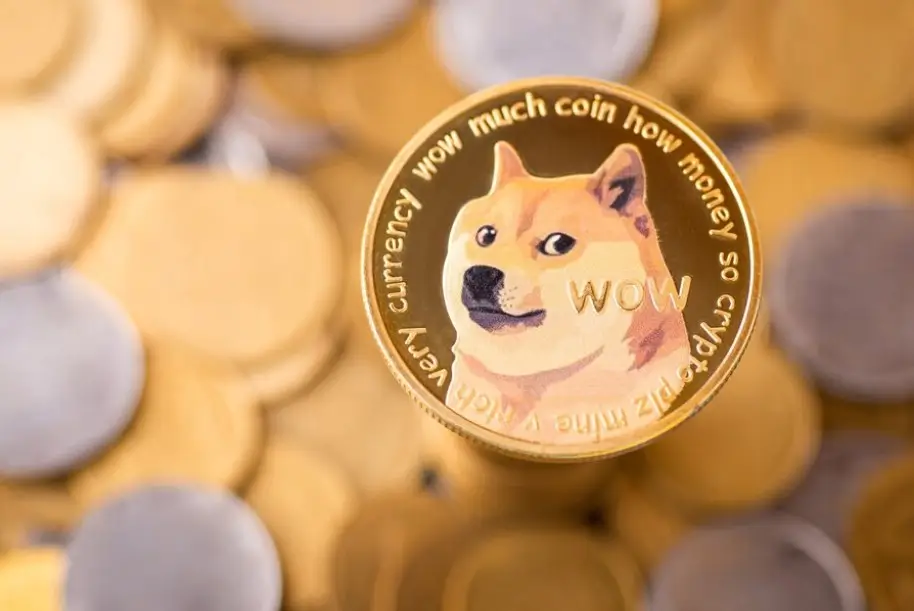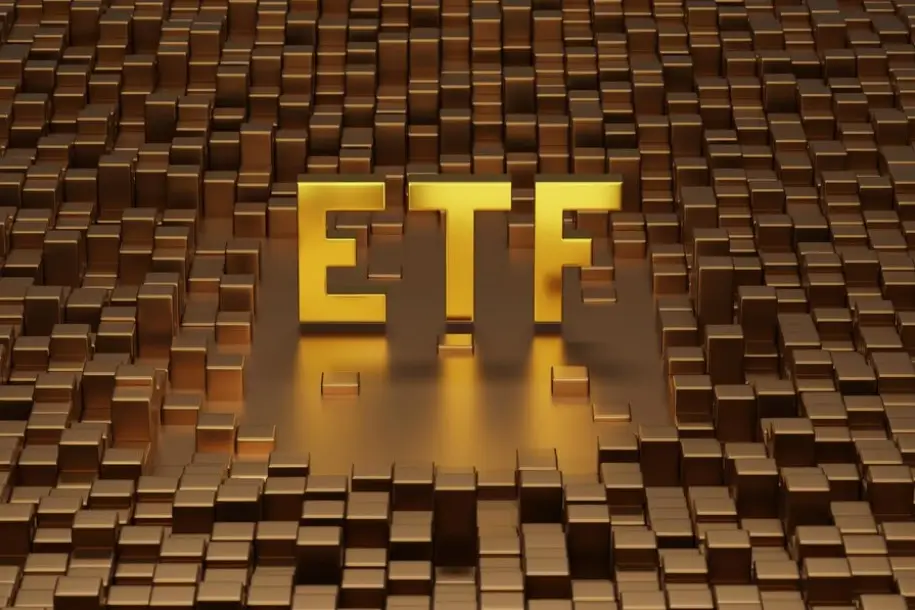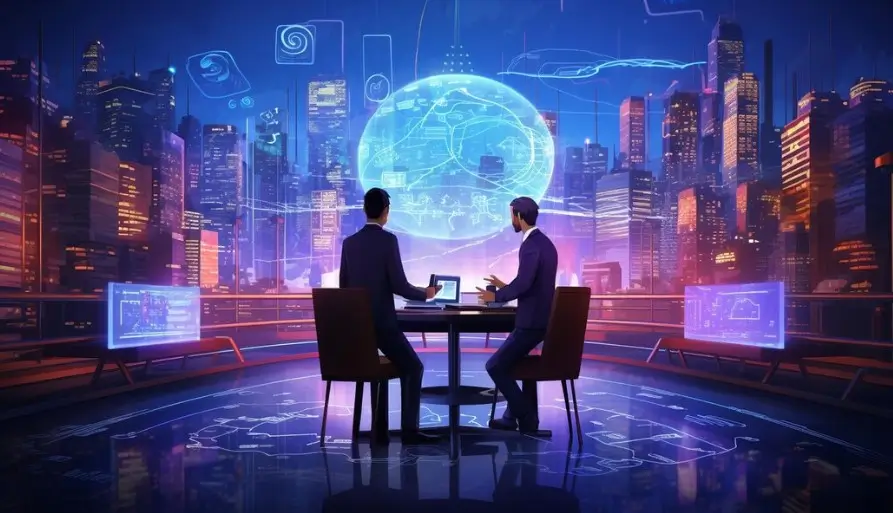A DAO, or Decentralized Autonomous Organization, is managed by decentralized computer programs on a blockchain. It functions without centralized leadership, with members owning tokens and voting on decisions.
DAOs revolutionize conventional management structure by leveraging blockchain technology to create a new form of governance. This model promotes a more democratic, member-driven process where decision-making is transparent and inclusive. DAOs facilitate collective ownership and operation of an entity, where smart contracts execute organizational decisions automatically, ensuring integrity and trust among participants.
By codifying rules and automating processes, these organizations aim to eliminate traditional hierarchical structures, enabling a decentralized approach to organizational management. Whether for investment funds, community initiatives, or online projects, DAOs embody a shift towards a decentralized and autonomous future, empowering users through shared ownership and decision-making power.
What Is A Dao
Exploring the concept of a DAO, one quickly finds it a novel form of organizational structure, leveraging the transparency and security of blockchain technology. Often contrasted with traditional, hierarchical models, DAOs operate on a system of consensus, with decisions reflecting the collective will of stakeholders.
Token holders typically possess voting rights, enabling them to influence the organization’s direction and policies. These digital entities can streamline operations, reduce the potential for corruption, and democratize decision-making processes. Engaged in various activities, from investment strategies to charitable causes, DAOs embody a shift towards a more open, inclusive approach to governance and collective action in the digital era.
History Of Daos
Embarking upon the exploration of the decentralized web, one encounters the revolutionary realm of DAOs. Tracing back to the inception of these entities, we recognize a pivotal shift in organizational structures. DAOs, or Decentralized Autonomous Organizations, emerged as digital manifestations of collective governance, powered by blockchain technologies.
They crystallize the philosophy of decentralization, fostering a community-led approach where actions and decisions are regulated not by a select few, but by consensus mechanisms. Propelled by smart contracts, DAOs ensure transparency and democracy in operations, allowing stakeholders to sculpt their own corporate ecosystem.
This transformation in how people collaborate marks a significant chapter in digital history, as we witness the erosion of traditional power hierarchies and the rise of a more equitable model for enterprise.
Dao Crypto
Exploring the innovative landscape of the crypto world, decentralized autonomous organizations (DAOs) are gaining momentum. A DAO operates on blockchain technology, which ensures transparency and democracy across the organization’s processes. Ownership is often spread across a wide network, with token holders having a say in governance decisions.
This model empowers community involvement and shifts the paradigm from a traditional hierarchical structure to a more open, member-driven approach. The utility of a DAO extends across various sectors, from venture capital to content creation, each leveraging the decentralized ethos to facilitate collaboration and decision-making without a centralized authority.
Behind the scenes, smart contracts automate organizational operations, reinforcing the trustless nature of these entities and paving the way for a more autonomous corporate future.
Dao Meaning
Exploring the concept of DAO often reveals a multifaceted landscape of innovative organizational structures. A DAO, or Decentralized Autonomous Organization, represents a groundbreaking approach to collective governance. These entities operate on blockchain technology, ensuring transparency and democracy in decision-making processes.
Rather than relying on traditional managerial hierarchies, DAOs utilize smart contracts to enforce rules and facilitate transactions automatically. Token holders within a DAO have the power to propose and vote on initiatives, truly reflecting a member-driven ethos. As these organizations continue to evolve, they have the potential to revolutionize the way communities and projects align interests and operate in unison, all while circumventing central authority.
How Daos Work
Decentralized Autonomous Organizations (DAOs) are radically reshaping the concept of communal governance. Composed of members who interact according to a set of coded rules on a blockchain, DAOs exemplify a paradigm of decentralized control, where no single individual holds authority.
Each stakeholder has a voice, with decision-making power proportionate to their token holdings. Through smart contracts, DAOs operate transparently, upholding integrity in voting and resource allocation. The rise of DAOs challenges traditional organizational structures by offering a collective approach to managing projects and assets, aligning with the ethos of blockchain’s distributed nature.
This shift toward decentralized consensus could redefine collaborative efforts across various sectors.
List Of Daos
Exploring the dynamic world of decentralized autonomous organizations (DAOs) provides a glimpse into the future of collaborative governance. These entities operate on blockchain technology, creating a transparent and democratic environment where decision-making power is distributed among members. Each DAO is unique in its mission, ranging from investment collectives to philanthropic endeavors, and operates through smart contracts, ensuring an autonomous and direct execution of the community’s decisions.
Membership is often token-based, granting voting rights and a stake in the organization’s future. As the list of DAOs continues to grow, it illustrates the potential for a transformation in organizational structures and collective action.
Best Dao Platform
Choosing the right DAO platform for your needs requires understanding what differs one from another. With blockchain technology at the core, these platforms democratize decision-making processes, as member votes directly influence the organization’s direction. The best platforms exemplify transparent and secure governance, reliable smart contract execution, and community-focused features that foster collaboration and equity.
Accessibility also plays a crucial role, allowing participants from various backgrounds to engage without barriers. Token holders wield power proportionate to their stake, ensuring a level of involvement and control in the entity’s future. Membership openness, the sophistication of voting systems, and the platform’s overall adaptability to evolving regulations are also critical factors to consider when evaluating which DAO platform stands at the forefront of innovation.
Dao Regulation
Understanding the intricacies of DAO regulation requires a deep dive into the complex world of blockchain and cryptocurrency governance. As decentralized autonomous organizations operate without traditional hierarchical structures, they create a unique challenge for regulatory bodies trying to apply existing laws to these digital entities.
The governance tokens of these organizations grant voting rights, blurring the lines between users and owners, and making accountability ambiguous. Regulators worldwide are grappling with how to ensure consumer protection and legal compliance while fostering innovation. Effective regulation must balance these concerns with the inherently decentralized ethos of DAOs, setting a precedent for the future of digital organization governance.
Dao Structures
Exploring the innovative realm of DAOs reveals a transformative approach to organizational management and collaboration. At the core of these entities lies a framework free from the constraints of centralized authority, indicating a seismic shift towards a democratized and transparent governance structure.
Members, equipped with blockchain-enabled tokens, wield the power to sway decision-making processes through collective voting mechanisms. This novel architecture, harnessing the power of smart contracts and blockchain technology, paves the way for a trustless and autonomous environment. Such revolutionary structures empower communities, ensuring that every voice contributes to the evolution of the organization, making the concept of DAOs a beacon in the landscape of future corporate governance models.
Pros And Cons Of A Dao
Decentralized Autonomous Organizations (DAOs) represent a significant shift in how collectives can self-manage. By leveraging blockchain technology, DAOs engender a level of transparency and fairness not typically found in traditional organizations. Proponents value the democratic process of decision-making where each token held is a vote towards community-driven initiatives.
Critics, on the other hand, highlight potential security risks and the uncertainty surrounding regulatory compliance. As these entities continue to gain traction, the balance between their inherent advantages, such as resistance to censorship and lowered barriers to entry, and the challenges they face, like scalability and effective governance, remains a dynamic narrative in the future of organizational structure.
Dao Example
Exploring the world of decentralized governance, the concept of DAOs—Decentralized Autonomous Organizations—stands out for its innovative approach to decision-making and community-driven operations. Put simply, a DAO is an entity with no single leader, its direction steered by stakeholders who utilize blockchain technology for transparent and secure voting on proposals.
Blockchain serves as the trustless backbone, automating processes that traditionally require layers of management and bureaucracy. Stakeholders in a DAO aren’t just passive investors; they actively participate in shaping the future of the organization through a democratic system, where their votes are proportional to the tokens they hold.
This framework is reshaping the fabric of corporate governance, positing a radical departure from centralized systems to ones where power is more evenly distributed among its members.
Frequently Asked Questions On Dao
DAO stands for Decentralized Autonomous Organization, which is led by smart contracts on a blockchain, allowing member-driven governance and operations without central authority.
The true meaning of DAO is “Decentralized Autonomous Organization,” an entity with no central leadership, managed by smart contracts on a blockchain.
A DAO, or Decentralized Autonomous Organization, is an entity with no central leadership, managed by smart contracts and community consensus on a blockchain.
A DAO earns revenue through investments, services, and transactions agreed upon by its token-holding members.
A DAO, or Decentralized Autonomous Organization, refers to an entity managed by smart contracts on a blockchain, ensuring democratic and decentralized decision-making.
Conclusion
Navigating the complexities of DAOs reveals a revolution in organizational structures. We’ve dived into their decentralized nature and community-driven operations, showcasing how autonomy and technology can reshape governance. Embracing DAOs could mean empowering individuals and fostering innovation. As we continue to explore and iterate on the DAO concept, its potential to transform industries and societies remains an exciting development to watch.
Remember, DAOs aren’t just a technological marvel—they’re a blueprint for future collaboration and collective decision-making.
















